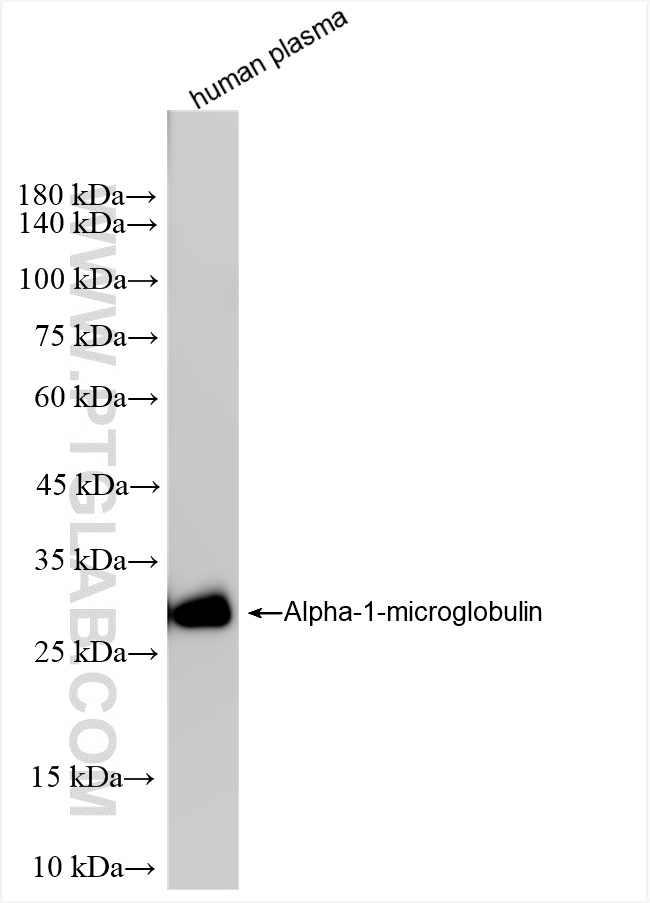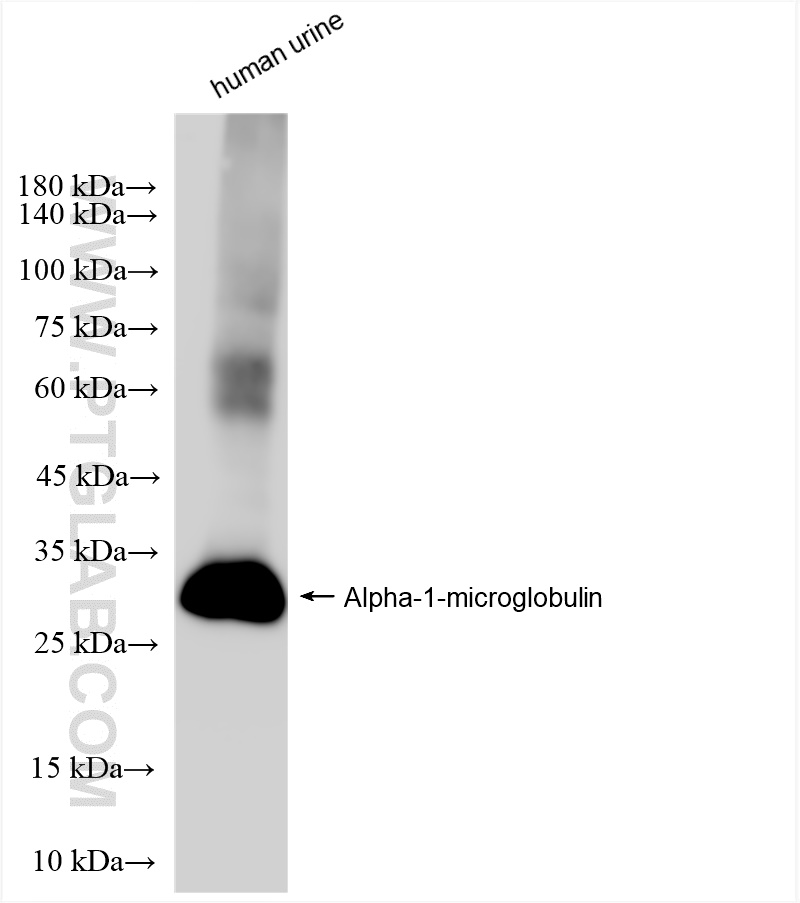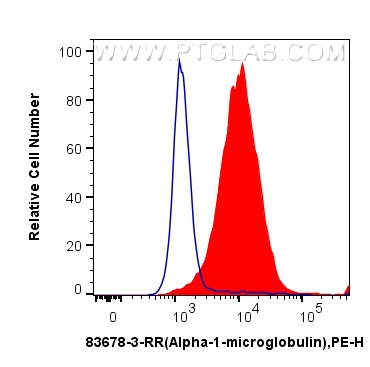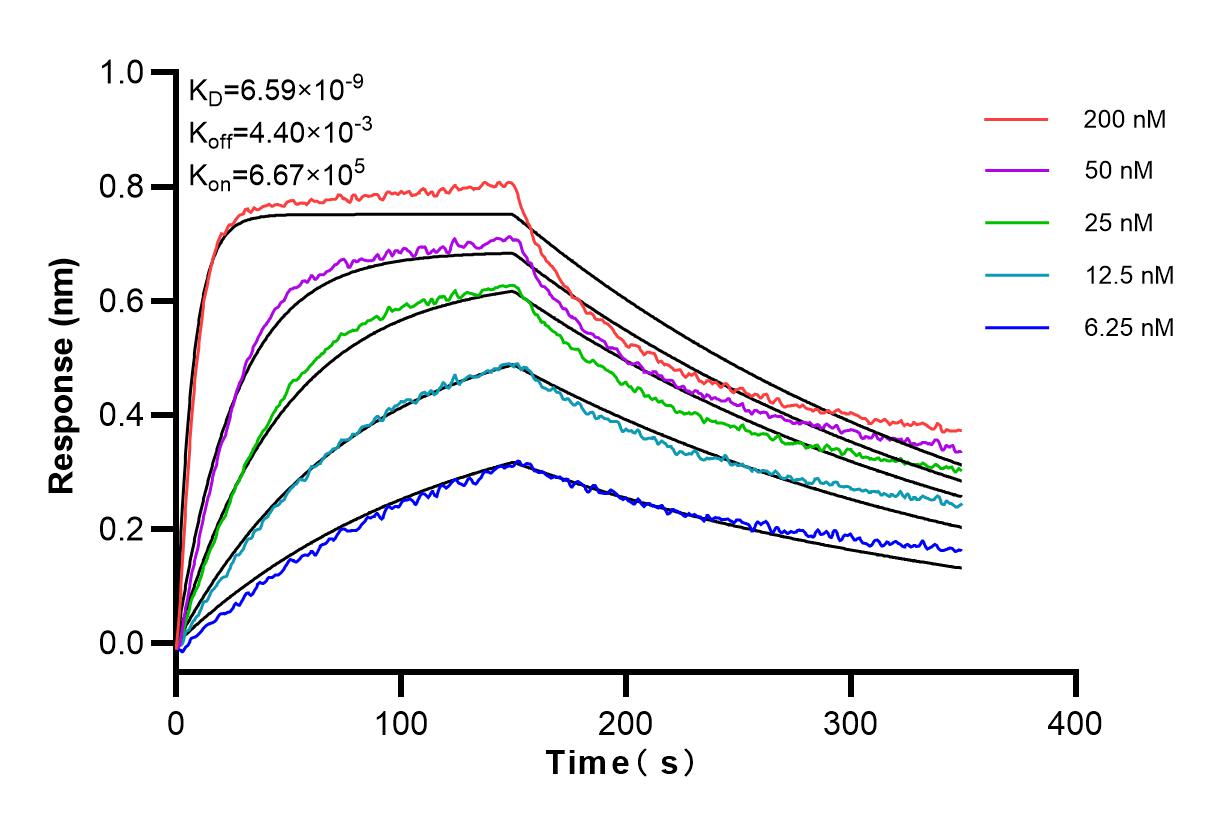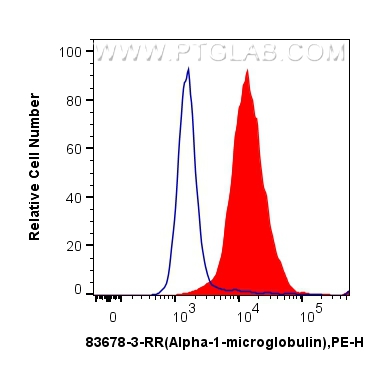验证数据展示
经过测试的应用
| Positive WB detected in | human plasma, human urine sample |
| Positive FC (Intra) detected in | MCF-7 cells, HepG2 cells |
推荐稀释比
| 应用 | 推荐稀释比 |
|---|---|
| Western Blot (WB) | WB : 1:5000-1:50000 |
| Flow Cytometry (FC) (INTRA) | FC (INTRA) : 0.25 ug per 10^6 cells in a 100 µl suspension |
| It is recommended that this reagent should be titrated in each testing system to obtain optimal results. | |
| Sample-dependent, Check data in validation data gallery. | |
产品信息
83678-3-RR targets Alpha-1-microglobulin in WB, FC (Intra), ELISA applications and shows reactivity with human samples.
| 经测试应用 | WB, FC (Intra), ELISA Application Description |
| 经测试反应性 | human |
| 免疫原 | Recombinant protein 种属同源性预测 |
| 宿主/亚型 | Rabbit / IgG |
| 抗体类别 | Recombinant |
| 产品类型 | Antibody |
| 全称 | alpha-1-microglobulin/bikunin precursor |
| 别名 | AMBP, Alpha 1-microglobulin, Alpha 1 microglycoprotein, Alpha 1 microglobulin, A1M |
| 计算分子量 | 39kDa |
| 观测分子量 | 30 kDa |
| GenBank蛋白编号 | NM_001633.4 |
| 基因名称 | Alpha 1 microglobulin |
| Gene ID (NCBI) | 259 |
| RRID | AB_3671281 |
| 偶联类型 | Unconjugated |
| 形式 | Liquid |
| 纯化方式 | Protein A purfication |
| UNIPROT ID | P02760 |
| 储存缓冲液 | PBS with 0.02% sodium azide and 50% glycerol , pH 7.3 |
| 储存条件 | Store at -20°C. Stable for one year after shipment. Aliquoting is unnecessary for -20oC storage. |
背景介绍
Alpha 1 microglobulin, also known as HI30, is a 27-30 kDa glycoprotein, present in various body fluids. It belongs to the lipocalin superfamily of hydrophobic ligand-binding proteins forming an internal ligand-binding pocket. The protein acts as a mediator of bacterial adhesion to polymer surfaces and is involved in inhibiting renal lithogenesis.
实验方案
| Product Specific Protocols | |
|---|---|
| WB protocol for Alpha-1-microglobulin antibody 83678-3-RR | Download protocol |
| Standard Protocols | |
|---|---|
| Click here to view our Standard Protocols |
